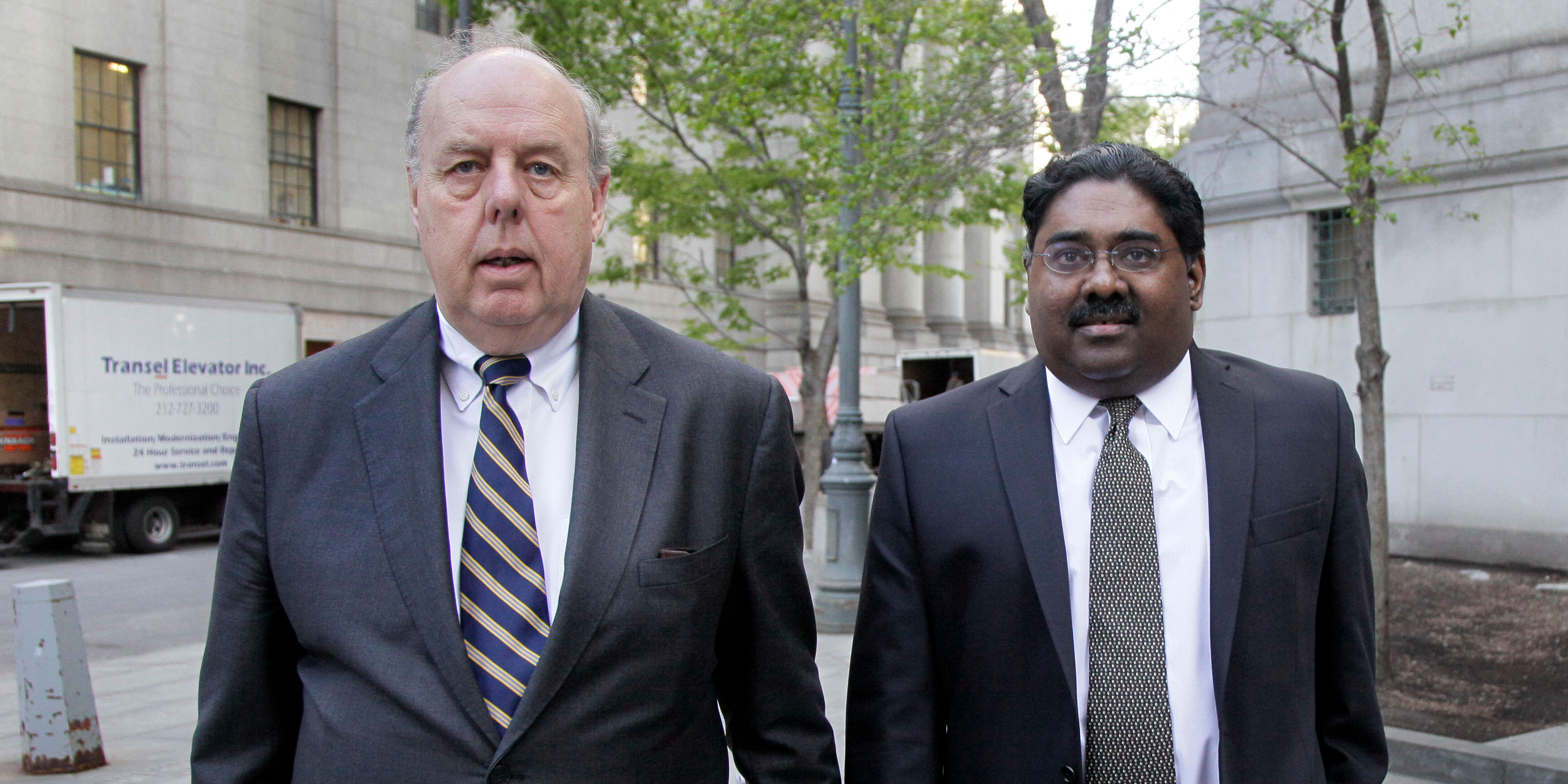- On Thursday, John Dowd, one of President Donald Trump’s lead defense attorneys, resigned from representing him.
- Dowd resigned in part because he was frustrated Trump was not following his advice, The New York Times reported.
- Dowd’s resignation is most likely one part of a broader legal-team shakeup Trump is said to be weighing as he goes on the offensive against Robert Mueller, the special counsel investigating Russia’s election interference.
- Trump said later Thursday that he “would like to” testify before Mueller.
John Dowd, the defense attorney who was leading President Donald Trump’s team in the special counsel Robert Mueller’s investigation into Russia’s election interference, confirmed to Business Insider that he had resigned from representing Trump.
The New York Times first reported Dowd’s resignation.
Trump has increasingly vented his frustration about the Russia investigation and Mueller in recent days. And Dowd invited intense scrutiny last weekend when he publicly called for the deputy attorney general, Rod Rosenstein, to shut down the Russia investigation, which Dowd characterized as corrupt and biased against Trump.
Later Thursday, however, Trump said he’d want to testify before Mueller – a move Dowd had opposed.
"Yes, I would like to," Trump told reporters.
Dowd's resignation is just one part of a broader legal-team shakeup Trump is said to be considering. The president is reportedly weighing whether to fire the White House lawyer Ty Cobb, who has largely advocated a more cooperative approach toward the investigation. Trump also recently hired Joseph diGenova, a controversial former federal prosecutor known for peddling conspiracy theories about the Department of Justice and the FBI.
Trump has not been consulting with his top advisers on his legal-team moves, opting instead to speak to friends and loyalists on the phone, The Washington Post reported earlier this week.
"It looks to me like they have too many conflicting power centers on their defense team, and all will be competing and giving advice that conflicts with one another," said Peter Zeidenberg, a former federal prosecutor who worked on the special-counsel investigation into Lewis "Scooter" Libby during the 2003 Valerie Plame affair.
"Ideally, a team settles on a single strategy and then executes that strategy with their whole team pulling as one," Zeidenberg said. "That is the opposite of what is happening here, where you have the confrontational strategy and the cooperation strategy on the same team."
Jens David Ohlin, a vice dean at Cornell Law School who's an expert on criminal law, said Trump's legal team consisted of "two camps."
"The first group, which includes Ty Cobb, wants the president to stay away from Twitter and stop attacking Mueller, because doing that will only land Trump in more legal and political trouble," Ohlin said. "The second group wants Trump to fight back hard - to 'let Trump be Trump.'"
He added: "You can guess which strategy Trump himself prefers."
The Times reported on Thursday that Dowd's resignation was due in part to his frustration that Trump was not following his legal advice, particularly as it relates to sitting down for an interview with the special counsel.
With Dowd at the helm, the president's legal team was angling to sidestep such an interview because it could hurt Trump, who has a demonstrated history of making false and exaggerated statements.
Dowd's resignation and the expectations of a legal-team shakeup indicate Trump is likely to increase his offensive against Mueller and the Russia investigation, which the president has called a "hoax" and a "witch hunt."

